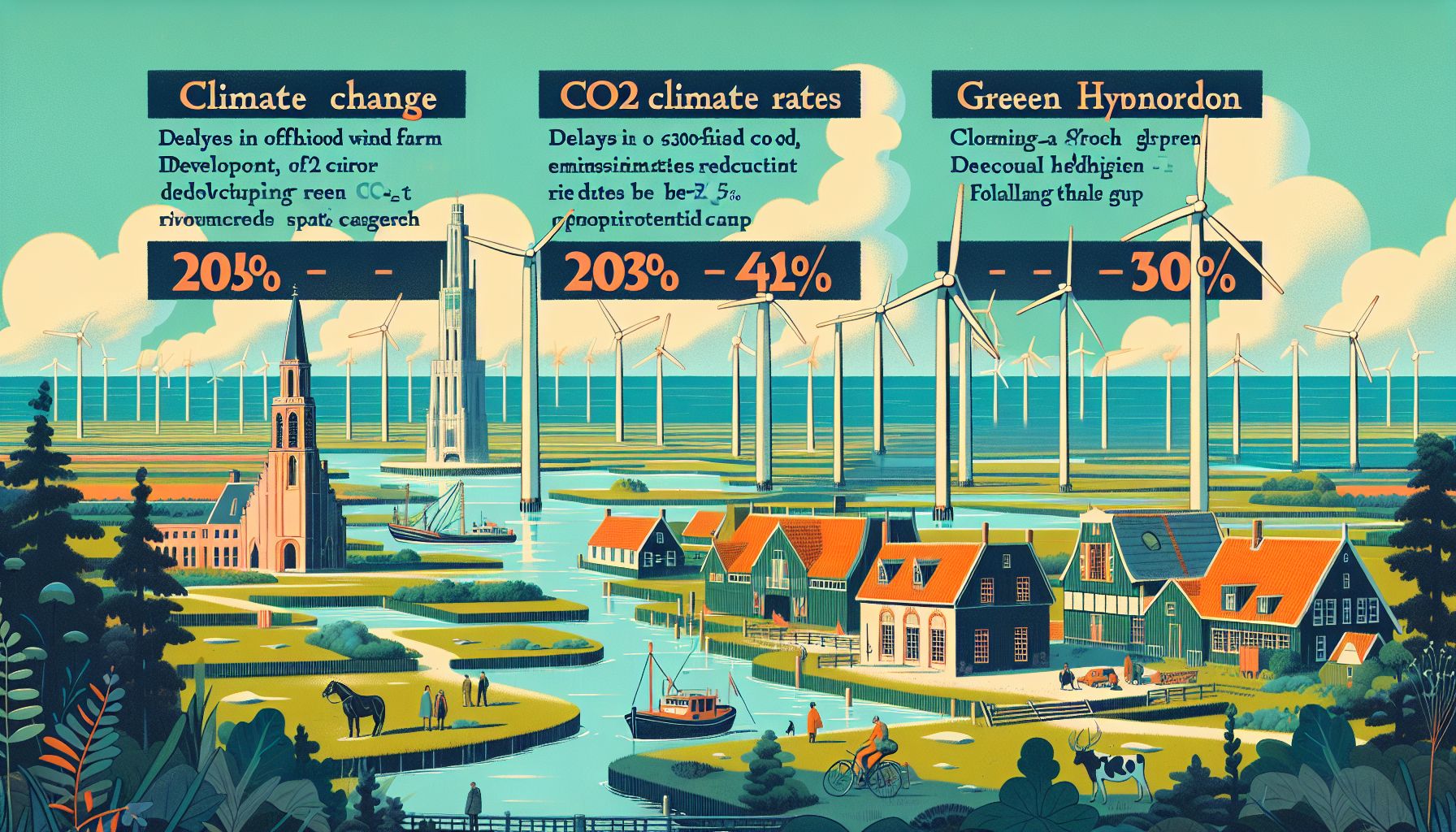Netherlands Risks Missing 2030 Climate Goals, Urgent Action Needed

The Hague, Thursday, 24 October 2024.
The Netherlands Environmental Assessment Agency warns that the country is unlikely to meet its 2030 climate targets without significant policy changes. Current measures fall short, projecting only a 44-52% reduction in CO₂ emissions compared to the required 55%. Delays in offshore wind farms and green hydrogen development pose major obstacles.
Policy Shortcomings Highlighted
The PBL’s report underscores the challenges faced by the Netherlands in meeting its climate targets. The government, having recently scrapped new road taxes and subsidies for solar panels, finds itself at a crossroads. These policy reversals contribute to the projected shortfall, as the current measures fall significantly short of the necessary emissions reductions[1].
Green Hydrogen and Wind Energy Setbacks
A critical aspect of the report is the delay in developing offshore wind farms and the scaling up of green hydrogen production. These are pivotal components of the Netherlands’ strategy to reduce CO₂ emissions. The PBL emphasizes that without urgent investment and policy implementation, these initiatives will not contribute sufficiently to the 2030 targets[2].
Government Response and Future Plans
Climate Minister Sophie Hermans has acknowledged the severity of the situation, stating the government’s unwavering commitment to carbon neutrality by 2050. She plans to introduce additional measures by the second quarter of next year to address these shortcomings. However, the immediate focus is on resolving energy grid congestion, which currently hampers progress towards the 2030 goals[3].
A Call for Immediate Action
The PBL’s findings have sparked a broader dialogue on the necessity of rapid policy shifts. Experts argue that without immediate and decisive action, the Netherlands will fall further behind. The urgency is compounded by the preparation time required for new investments in renewable energy, which typically spans five to ten years. This leaves a narrow window for effective policy enactment and implementation[4].
Long-Term Implications
The implications of missing the 2030 targets extend beyond national borders. As a key EU member, the Netherlands’ failure could undermine collective European efforts to meet climate goals. Moreover, it risks setting a precedent that could influence global climate negotiations negatively, highlighting the critical need for comprehensive and immediate policy reforms[5].

